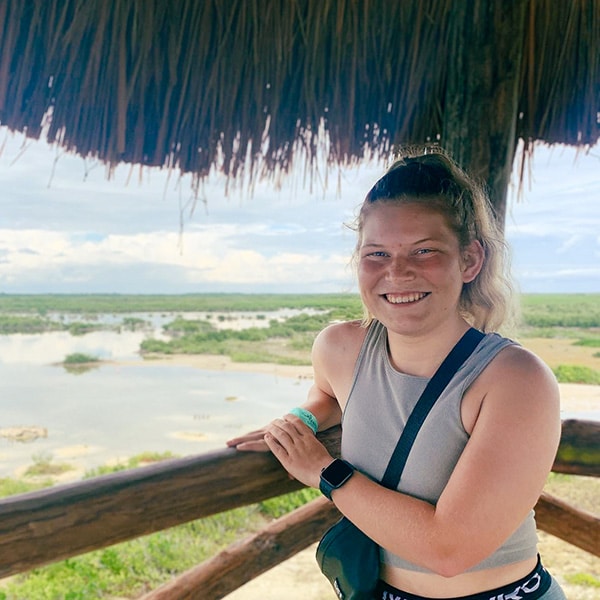VOLUNTEERING MEXICO
CORAL REEF PROTECTION
Would you like to dive into a completely new world and get to know and protect the creatures under the water surface? Our project on the paradisiacal Caribbean island of Cozumel is all about protecting the second-largest coral reef in the world. Global climate change is causing water temperatures to rise, and coral reefs are suffering greatly as a result. Over 50 percent of the world’s reefs have already died, and the so-called “coral bleaching” is causing serious problems in the ecosystem. Our project has been working for many years to stop this development. You can also help by actively supporting the project to restore the corals and keep them alive. And by the way, you will also learn how to dive. As a volunteer you will support the organization with daily tasks, help with the so-called “coral cleaning” and learn everything about the conservation and reproduction of corals.
QUICK FACTS
Type of program
Program location
Working time
Program start
Duration
Minimum age
Language
Requirements
Location
Accommodation
Catering
Support
Internet
Price
Conservation project
Cozumel, Mexico
approx. 5 hours, 5 days
Every 1st Saturday of the month
1-6 months
18 years
English
Suitable for diving, interested in environmental protection
In a city, sea within walking distance
Shared or single room in the hostel
Not included
English-speaking contact person via WhatsApp
Mobile internet and WiFi in the accommodation
From 1,860.00 €
QUICK FACTS
Type of program: Conservation project
Program Location: Cozumel, Mexico
Working time: about 5 hours, 5 days
Program start: Every 1st Saturday of the month
Duration: 1-6 months
Minimum age: 18 years
Language: English
Requirements: Suitable for diving, interest in environmental protection
Location: In a city, within walking distance to the sea
Accommodation: shared or single room in the hostel
Meals: Not included
Support: English-speaking contact person via WhatsApp
Internet: Mobile internet and WiFi in the accommodation
Price: from €1,860.00
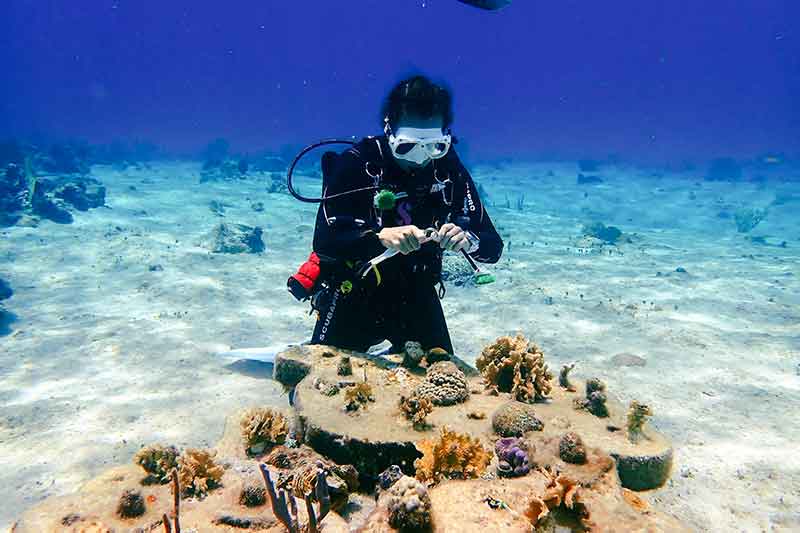
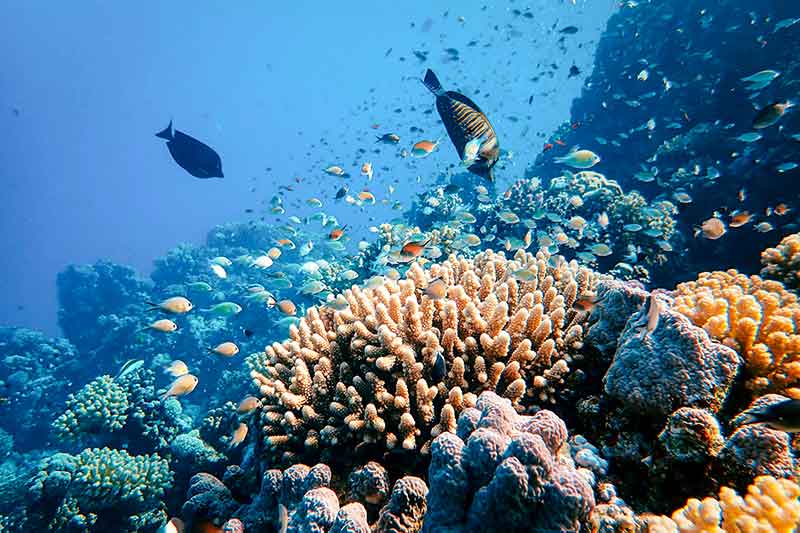
PROJECT DESCRIPTION
The project on the paradisiacal Caribbean island of Cozumel is committed to coral protection and restoration, with the aim of restoring coral reefs and promoting research programs. The program was created in 2013 by motivated biologists to counteract coral mortality. When the founder first dived in Cozumel, he perceived with horror the state of the corals and since then he fights daily with passion for their preservation. And with great success.
Cozumel is surrounded by a reef system over 1,000 kilometers long, the Mesoamerican Reef. It stretches in the Caribbean off the coasts of Mexico, Belize, Honduras and Guatemala and is the second largest coral reef in the world after the Great Barrier Reef. But coastal areas are particularly affected by the impacts of climate change. Not only does sea level rise pose a particular challenge to shallow regions, but rising temperatures in particular threaten aquatic habitats. Increased water temperature is leading to increased acidification and poses a threat to the up to 4,000 different species in the Mesoamerican Reef. In addition, increasingly frequent storms, with high winds and tidal waves causing great destruction underwater and along the coast, are a major problem for the already weakened coral reefs.
The underwater world is a complex community of interdependent life. For example, many fish use the caves and crevices in the reef as hiding places from predators and as nurseries for their offspring. Coral polyps and algae live in a unique symbiosis that gives tropical reefs their colorfulness. In addition, small coral polyps are an important food source for many creatures and thus count as the basis for one of the most complex ecosystems on earth. When the ocean warms, this system breaks down and living creatures die.
This coral die-off has been documented on the largest scale to date between 2014 and 2017. More than 70 percent of the world’s reefs were affected. Global warming is also increasing water temperatures, which stresses the algae in the bodies of coral-building polyps (polyps are small, soft animals that attach to hard surfaces). The algae give the coral its color and when they leave the polyp, the coral bleaches and dies. This global phenomenon is called “coral bleaching.” Nearly 50 percent of the world’s coral reefs have already died. If current trends are not halted, coral reefs, and therefore all other animals that live in this ecosystem, are likely to disappear almost completely within the next 30 years.
The “Coral Reef Restoration” project has set itself the task of stopping the coral death and restoring the corals on the reef with the help of volunteers and donations. About 300 volunteers have already been trained in the art of coral restoration and have helped build the marine park in Cozumel. There, corals are grown on concrete slabs with cup holders and reconnected to the reef under constant care. In a controlled environment, this allows the corals to slowly grow back without being affected by the effects of storms, overdevelopment or diver overload. Volunteers there also learn how to maintain coral reefs, counteract contamination and disease, and how to reproduce and propagate them.
Called Biorock reefs, they can be built in any size or shape and increase the settlement, growth, survival and resilience of corals and other marine life to severe environmental stresses such as high temperatures, pollution or storms. This is the only way to prevent coral extinction and all help is needed.
Due to the beauty of the reef, divers from all over the world are attracted to Cozumel, and there are now over 200 diving schools on the island. The many divers and especially their handling of the ecosystem also contribute a part to the coral death. For this reason, the project does educational work and works to make diving instructors and divers aware of this problem.
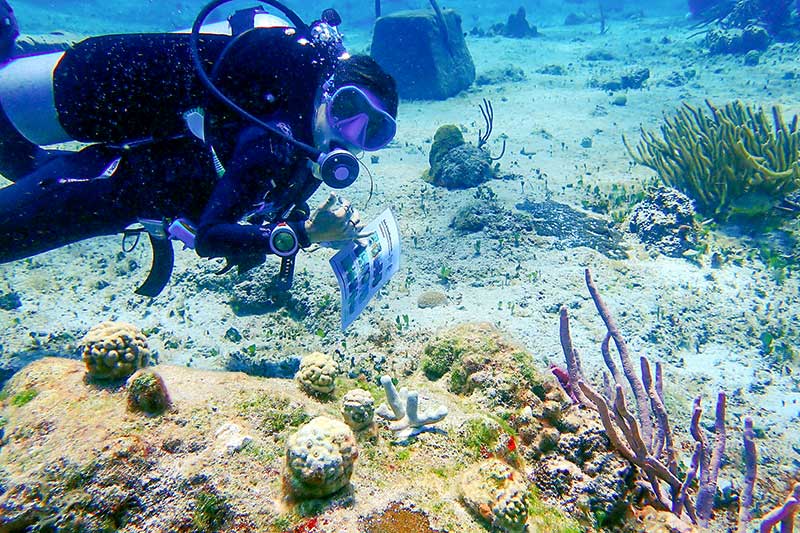
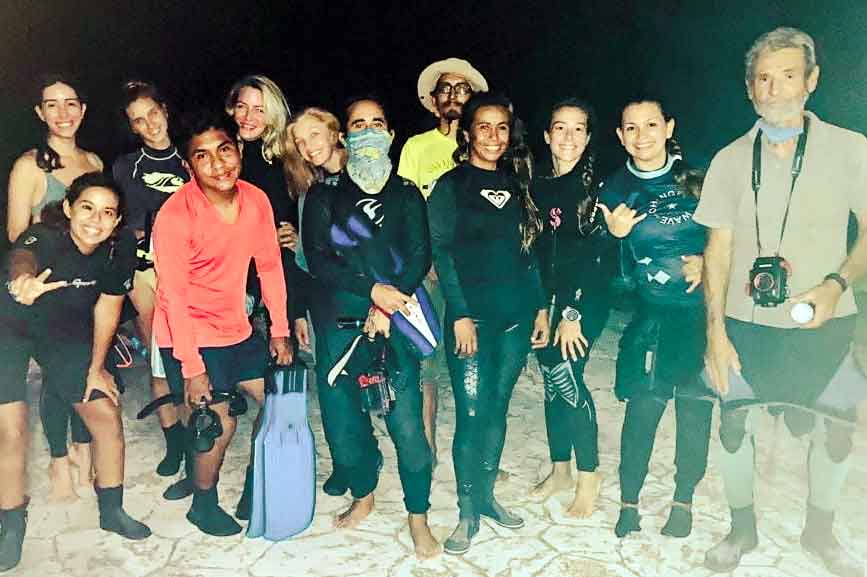
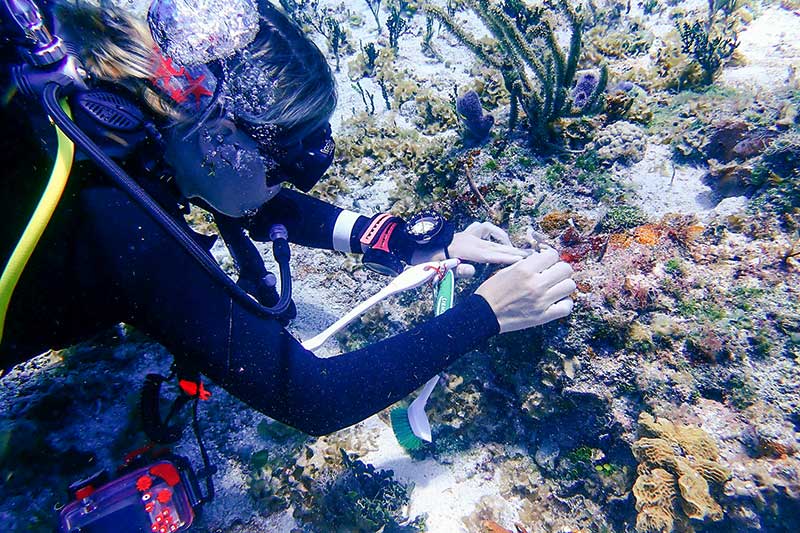
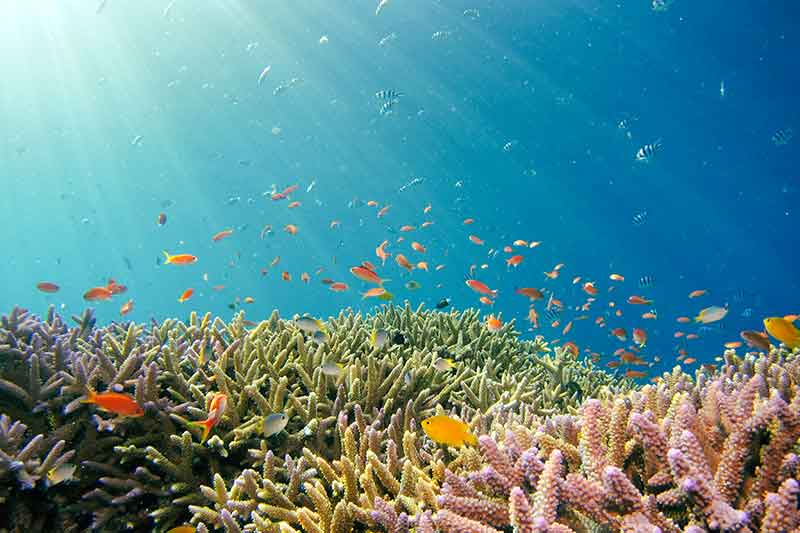
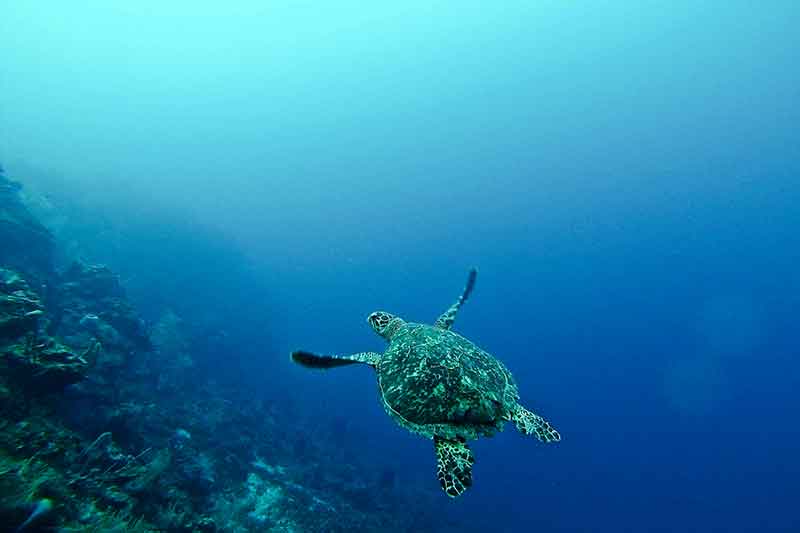
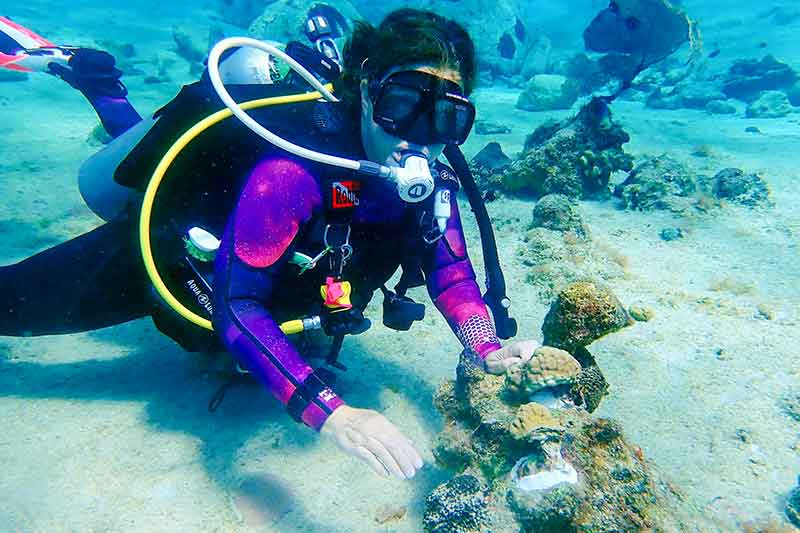
TASKS
The main task of the project is coral restoration. But what exactly is it anyway and how does it work? Coral reproduction can work in different ways. On the one hand, corals can reproduce by spawning, on the other hand by so-called “fragmentation”. Fragmentation allows broken coral branches to form a new colony in a different location on a reef. The project has developed a method to use the natural fragmentation process to efficiently propagate large numbers of corals. To do this, coral colonies are fragmented into smaller, finger-sized pieces and hung from so-called “coral trees.” These coral trees are connected to the seafloor and have space for up to 100 coral fragments. The trees float in the water column to prevent damage to the tree structure or coral. The nurseries are located in places with as much sunlight exposure and nutrient-rich water columns as possible, allowing the coral fragments to slowly grow into colonies. After about 6 to 9 months, the fragments are large enough to be “outplanted” to the reef. This involves attaching the corals directly to the reef at selected reef restoration sites. Here the corals can then spawn naturally and continue to reproduce. This method has proven to be successful and has shown that it is possible for reefs to eventually recover on their own with a little assistance. As a volunteer, you get to experience this exciting process first hand and help implement the restoration tasks. You will have the opportunity to make a lasting contribution to the survival of the reefs and learn an incredible amount about coral restoration.
But also outside the water there are some tasks for you as a volunteer. You will be responsible for organizing and carrying out events, for example beach clean-ups. You will also create flyers, manage the social media channels and promote different projects. So there are no limits to your creativity, but it is especially important that you are independent and can work on your own, because there is a lot to do. However, your help is also very much appreciated and you have the opportunity to actively contribute.
PROCEDURE
When you start your program in the “Coral Reef Restoration” project, you will first receive a one-week dive training and complete the PADI Open Water Diver Course. All equipment is provided by WanderWorld Travel. You only have to buy your own wetsuit and then it’s off to the sea! In your diving course you will learn the theory for the diving license as well as the practice in a few days. After successful completion of the course, which ends with a small theory exam, you will be ready to work on the project.
In your second week you will also do another two-day diving course on “Coral Reef Conservation” and after that you will help with the coral restoration work in Cozumel. This means that you will be able to dive every day, improve your skills and contribute to the protection of the environment. You will also learn a lot about the work of the project, and you will be able to help with studies on coral reef research and conservation. You will also learn a lot of theoretical knowledge about the reproduction of corals, which is helpful for the work underwater.
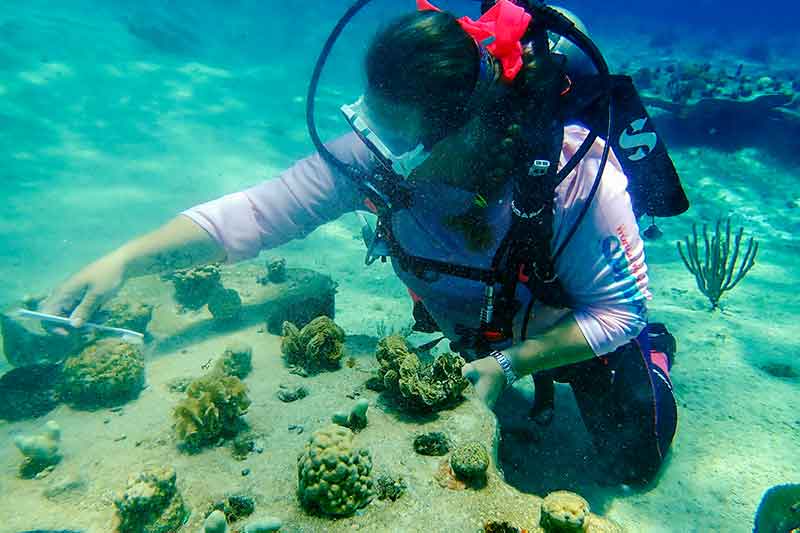
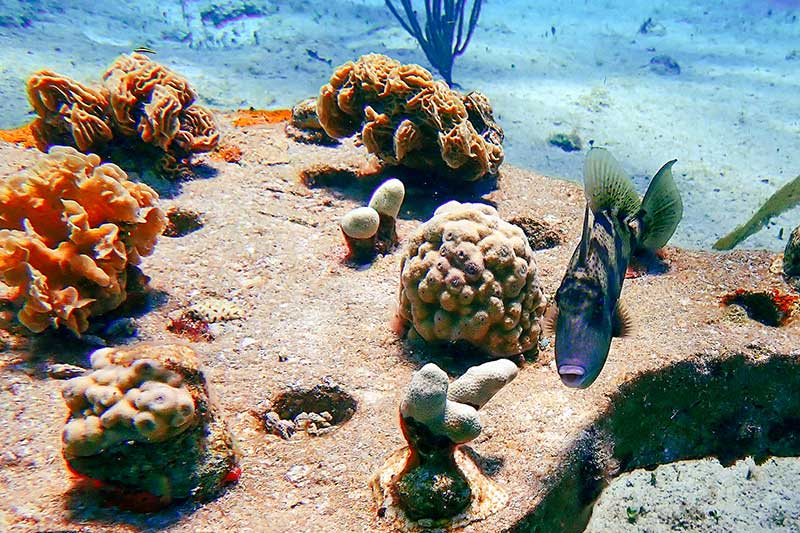
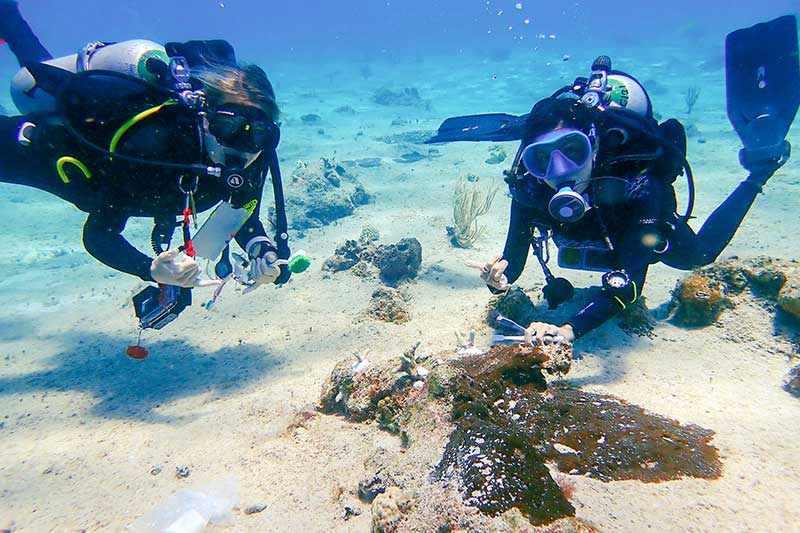
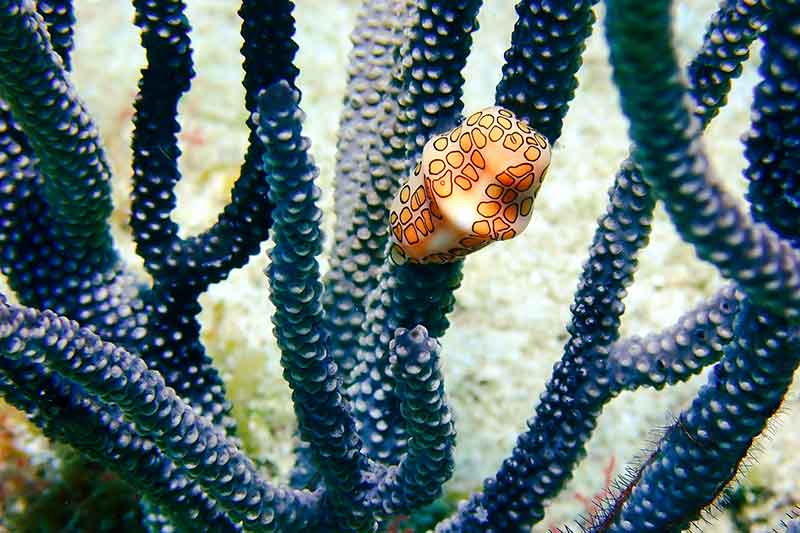
Cozumel
Cozumel is a Mexican Caribbean island located just off the city of Playa del Carmen. The island is known for its white sandy beaches, azure sea and untouched nature. Many tourists come here to lay in the sun and relax on the endless beaches. But Cozumel offers so much more. In Playa del Carmen, one of the best activities is to take a ferry to Cozumel and spend a day on the island.
Surrounding the island is the second largest coral reef in the world – the Mesoamerican Reef. It is considered the best diving spot in all of Mexico. You can also book a submarine tour to the reef or just snorkel there and admire the colorful fish and corals. In front of Cozumel there is also a shipwreck, which sank in 2000 – the “Felipe Xicotenactl Wreck”. There you can often find sharks, turtles and rays.
But also on land there is a lot to discover. On Cozumel is the “Punta Sur Ecological Park”, with an area of about 2,500 hectares. The perfect place for nature lovers. There you will find exotic birds, crocodiles and turtles, but also beautiful plants and of course white sandy beaches. There is also a lighthouse that is part of the maritime museum that you can visit and from the lookout point you can even see the coast of Cuba on a good day. In the park there is even an old Mayan ruin – the “Tumba del Caracol”. In the north of Cozumel there are more Mayan ruins, which are part of the archaeological site “San Gervasio”.
There is a lot to see and experience on Cozumel. In the central part of town there are countless bars and restaurants. Playa del Carmen is also only half an hour away by ferry and boats leave every hour.
From Cancún International Airport you can reach the island by bus and boat within about 2 hours.
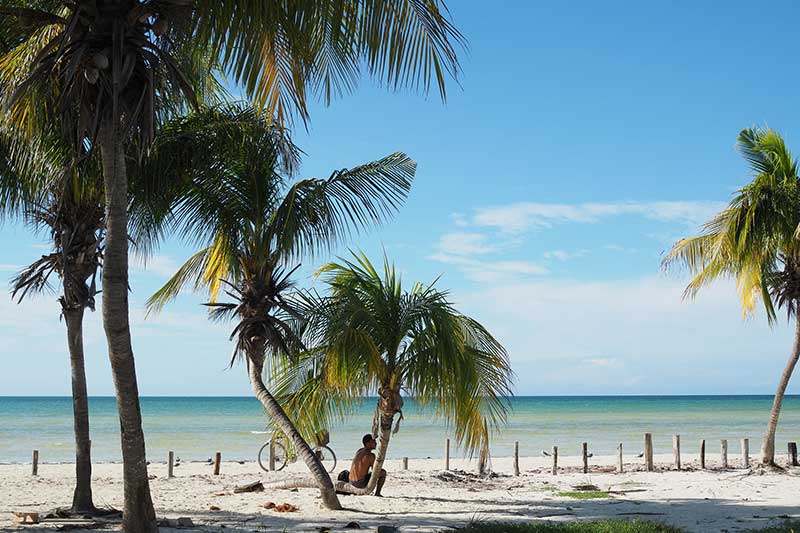
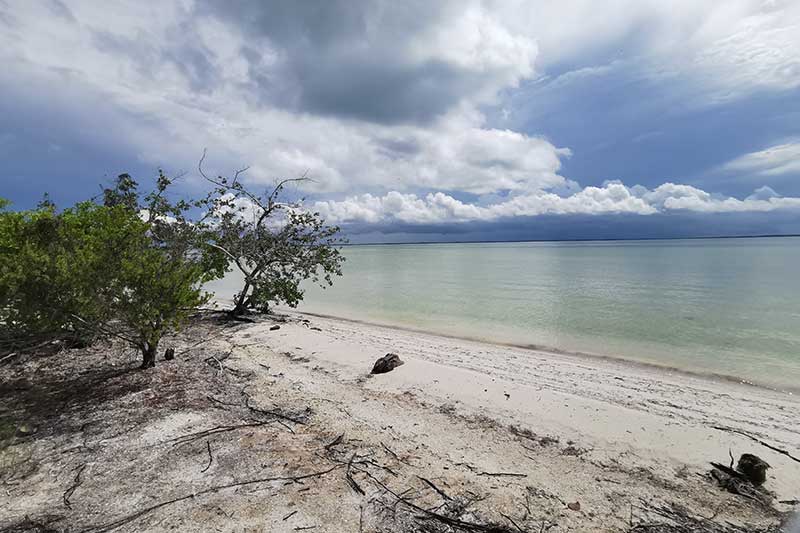
REQUIREMENTS
Since you will mainly be under water during your work, you should be fit for diving and not have any illnesses that make diving impossible. Therefore, you need a diving fitness certificate for diving, which can be issued by your family doctor in Germany. This certificate should not be older than 12 months. You should also have good swimming skills and not be afraid of open water.
Apart from that you don’t need any special requirements, just motivation, enthusiasm and a love for nature and the sea. You should also be enthusiastic about environmental protection, have a desire to work underwater and have the motivation to improve the situation of the coral reef in the long term. Also, openness to new cultures is especially important to us. Living in a foreign country always requires a certain willingness to adapt, which will be very rewarding for your development.
LANGUAGE
The national language in Mexico is Spanish. However, the leaders and staff of the project and the diving school speak English fluently for the most part, which is why knowledge of Spanish is not a prerequisite for participation. However, the locals are of course happy if you can communicate with them in Spanish, which is why basic knowledge is desirable, but not required.
DEINE ANSPRECHPARTNERIN IN MEXIKO
Silvia is originally from Munich and she liked it so much in Mexico during a world trip more than 15 years ago that she moved her life center to the Rivera Maya in Quintana Roo a few years later. She is very involved with the lived traditions and rituals of the locals. She knows the area very well and always discovers the beauty of the diverse nature and likes to share this with everyone who lands in Mexico for the first time. She speaks German, English and Spanish.
Silvia will take care of you during your orientation in Playa del Carmen. For questions of any concern during your stay in Latin America, an English-speaking contact person is available via WhatsApp in the same time zone.
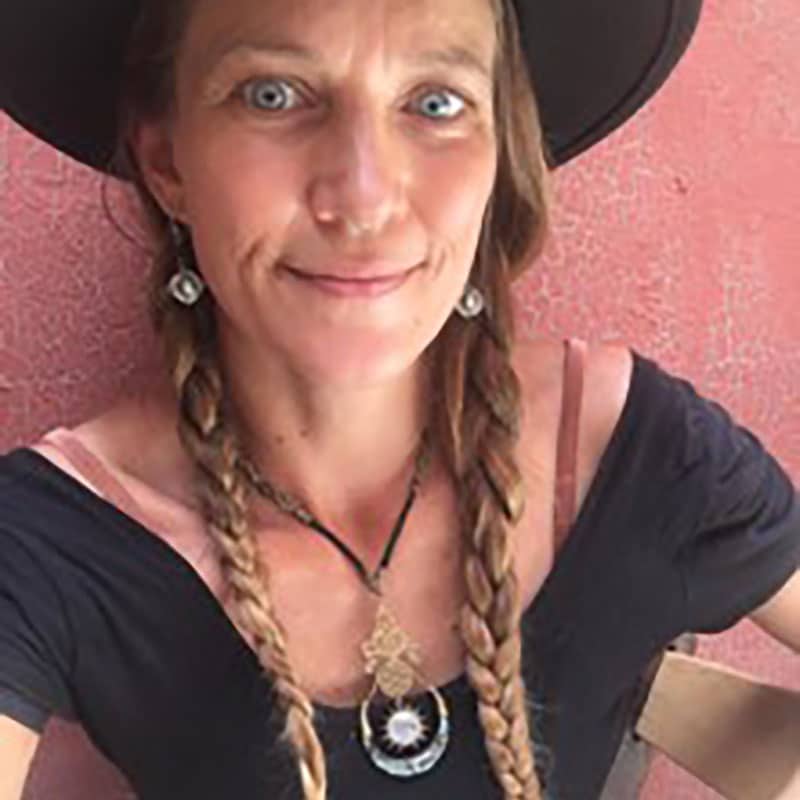
ACCOMMODATION
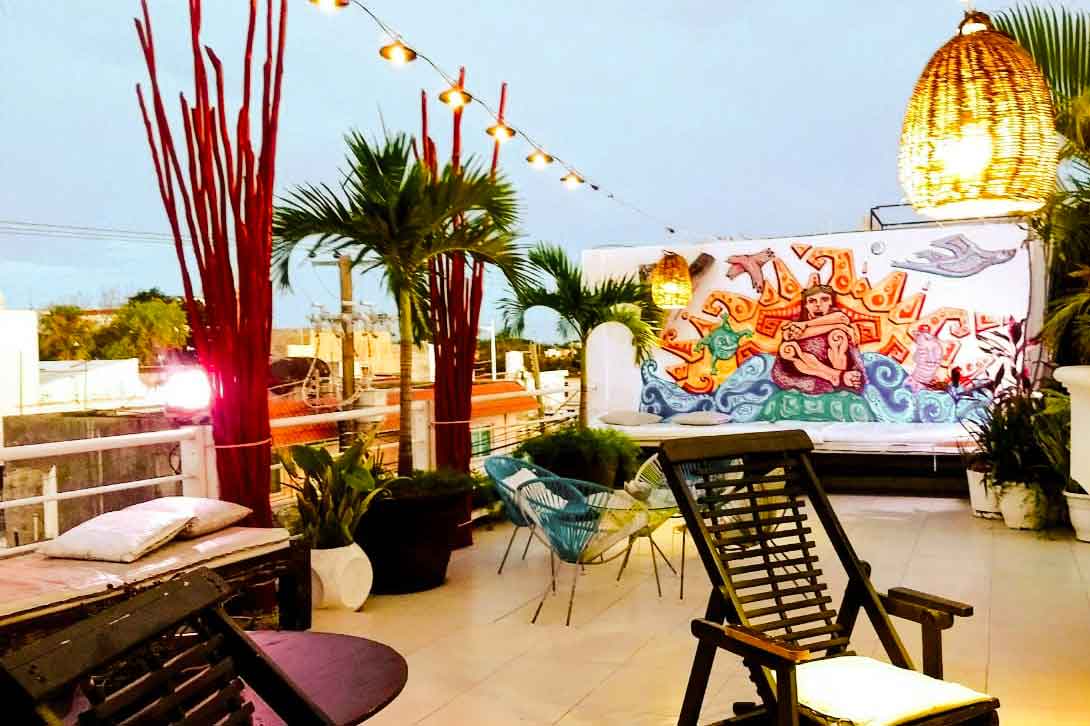
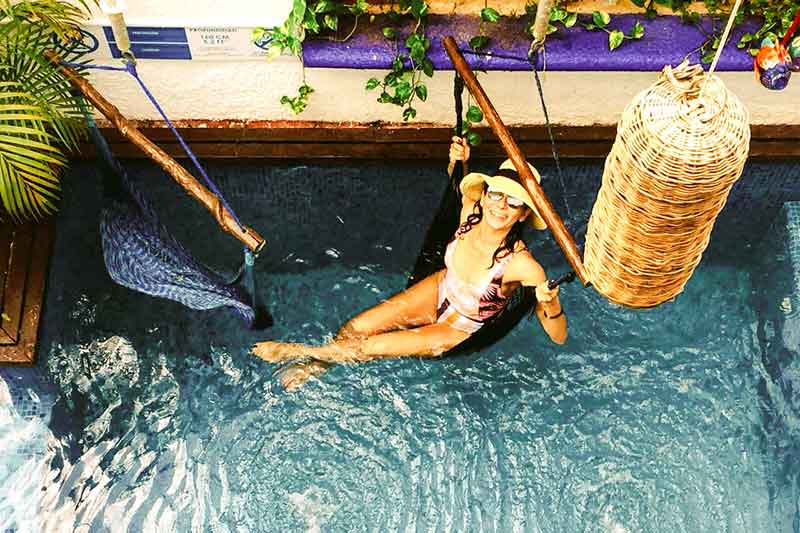
Während deiner Zeit im Projekt wohnst du in einem Einzel- oder Mehrbettzimmer in einem Hostel, direkt im Zentrum von San Miguel de Cozumel. Es zählt zu den beliebtesten Hostels in Cozumel und wird von vielen jungen Leuten aus aller Welt besucht. Dort lernst du schnell andere Reisende kennen. Das Hostel verfügt über einen Pool und einen tollen Gemeinschaftsbereich.
Im Hostel steht dir eine Küche zur Verfügung, die du gerne nutzen kannst. Im Ort gibt es aber auch zahlreiche Restaurants und Bars, die regionale Gerichte anbieten.
Das Hostel ist ca. 4 km vom Projekt und der Tauchschule entfernt. Du erreichst es mit öffentlichen Verkehrsmitteln, dem Taxi oder einem Fahrrad. Zur Fähre nach Playa del Carmen kommst du in wenigen Minuten zu Fuß.
Je nach Verfügbarkeit wirst du im Hostel oder in einer vergleichbaren Unterkunft wohnen.
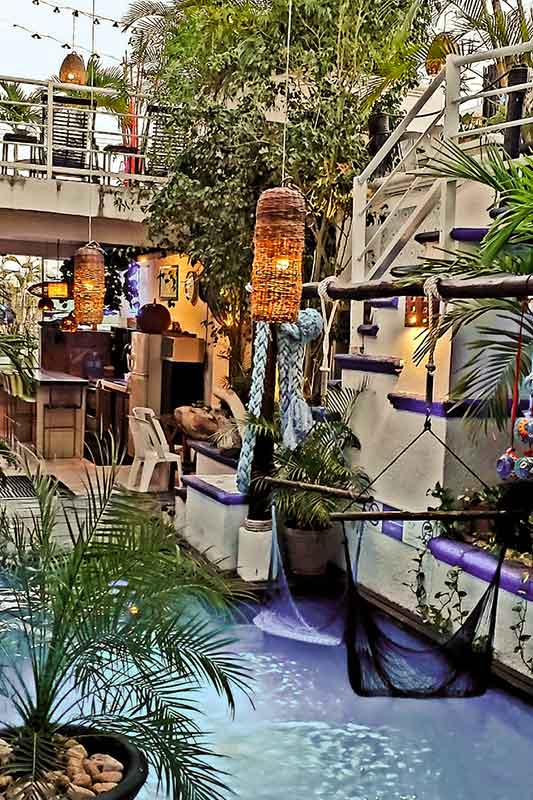
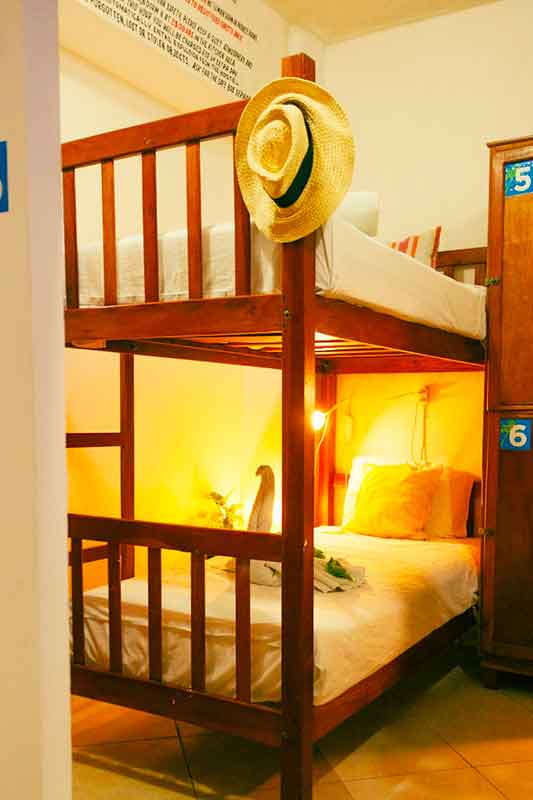
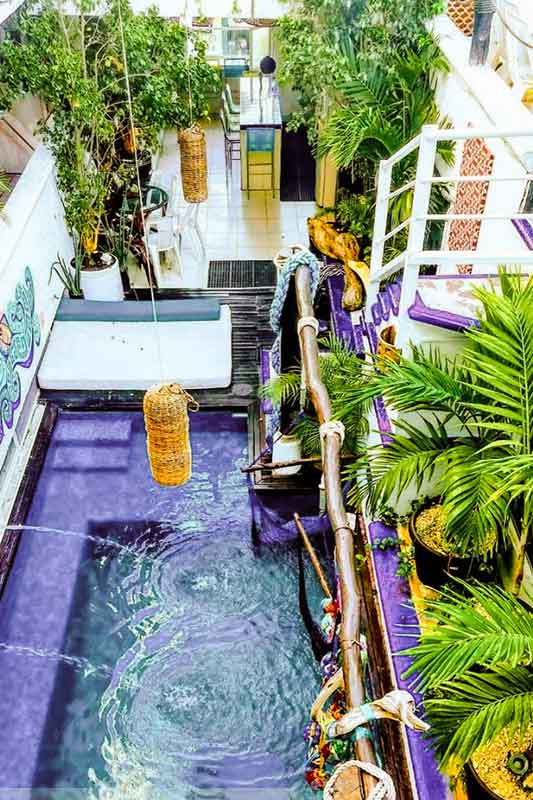
SERVICES AND PRICES
Prices:
Single room:
1st month in the starter package: €2,290.00
Extension month: €1,320.00
As a 2nd or 3rd program: €2,060.00
Multi-bed room:
1st month in the starter package: €1,860.00
Extension month: €880.00
As a 2nd or 3rd program: €1,630.00
Included in the project price are:
Diving equipment (only neoprene shirt needs to be purchased independently)
PADI Open Water Course
Coral Reef Conservation Approach
Donate to the project
10 additional oxygen tanks per week
Use of bicycles
You can also book other diving courses on site:
PADI Advanced Open Water
PADI Research Diver
PADI Reef Fish Identification Course





